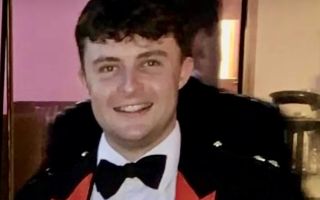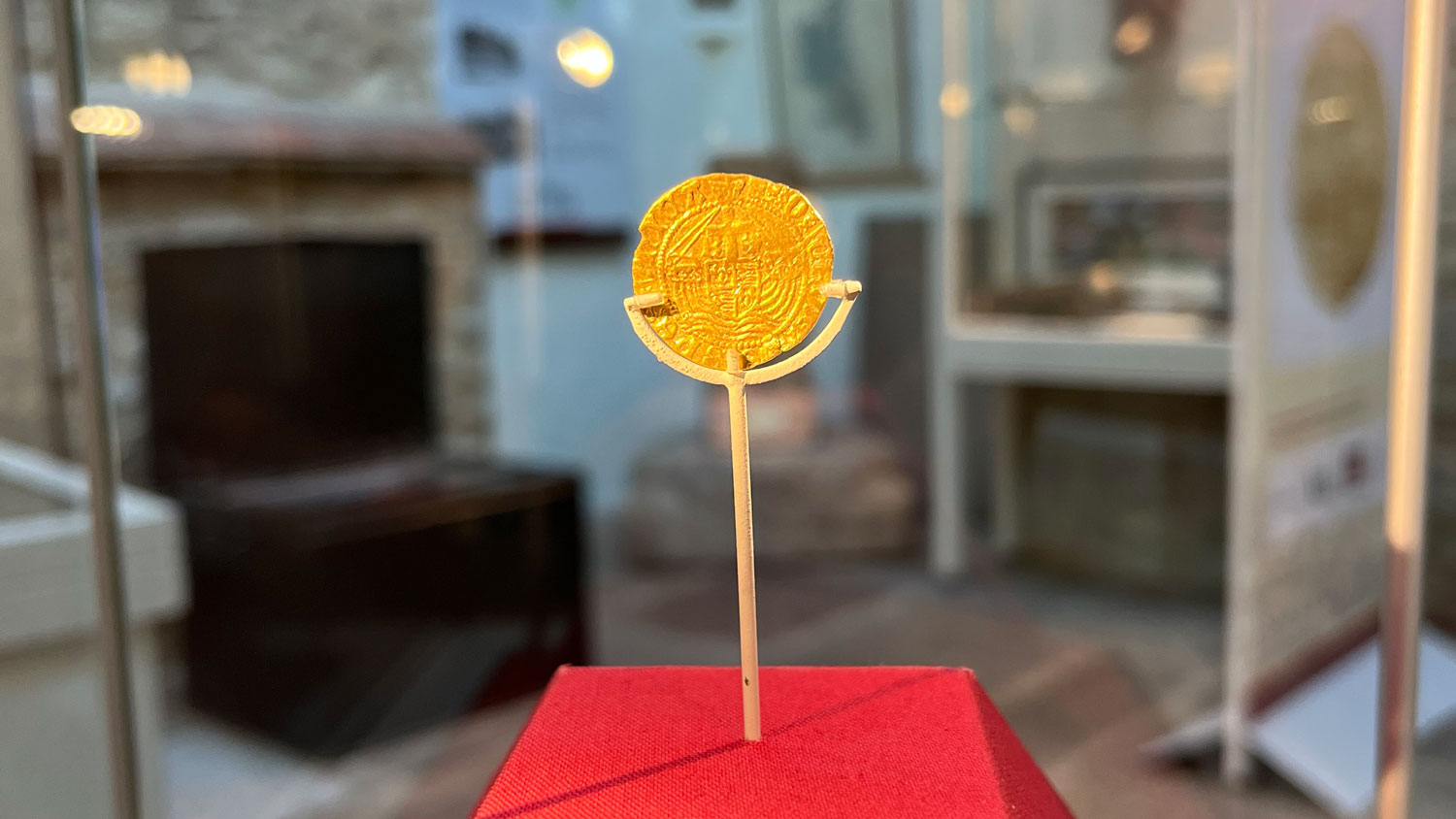
Ultra-rare gold coin worth £40,000 found by British Army veteran-turned-detectorist

On a warm summer's evening in 2019, a British Army veteran turned Category A prison officer discovered something so rare while metal detecting that it united members of his community in their quest to keep it local.
Dave Bethell, a former sergeant in the Royal Engineers who served from 1972 until 1993, found a 'very fine condition' Richard III Half Angel – a coin of which only seven have been discovered in the world – on farmland within a mile of Buckingham town centre.
Referencing an episode in which Del Boy and Rodney finally become millionaires when a pocket watch they find sells for £6,200,000 at auction, Mr Bethell said: "People were saying to me, this could be an Only Fools and Horses moment, you know, because we don't know how much people are willing to spend.
"There's only six [others] in the world. We don't know how much people are willing to pay for this."
It now takes pride of place at the Buckingham Gaol Museum – a former prison where "poachers, drunks and even the odd murderer were locked away".
And the Richard III Half Angel is the only one of the seven to be on public display anywhere in the world.
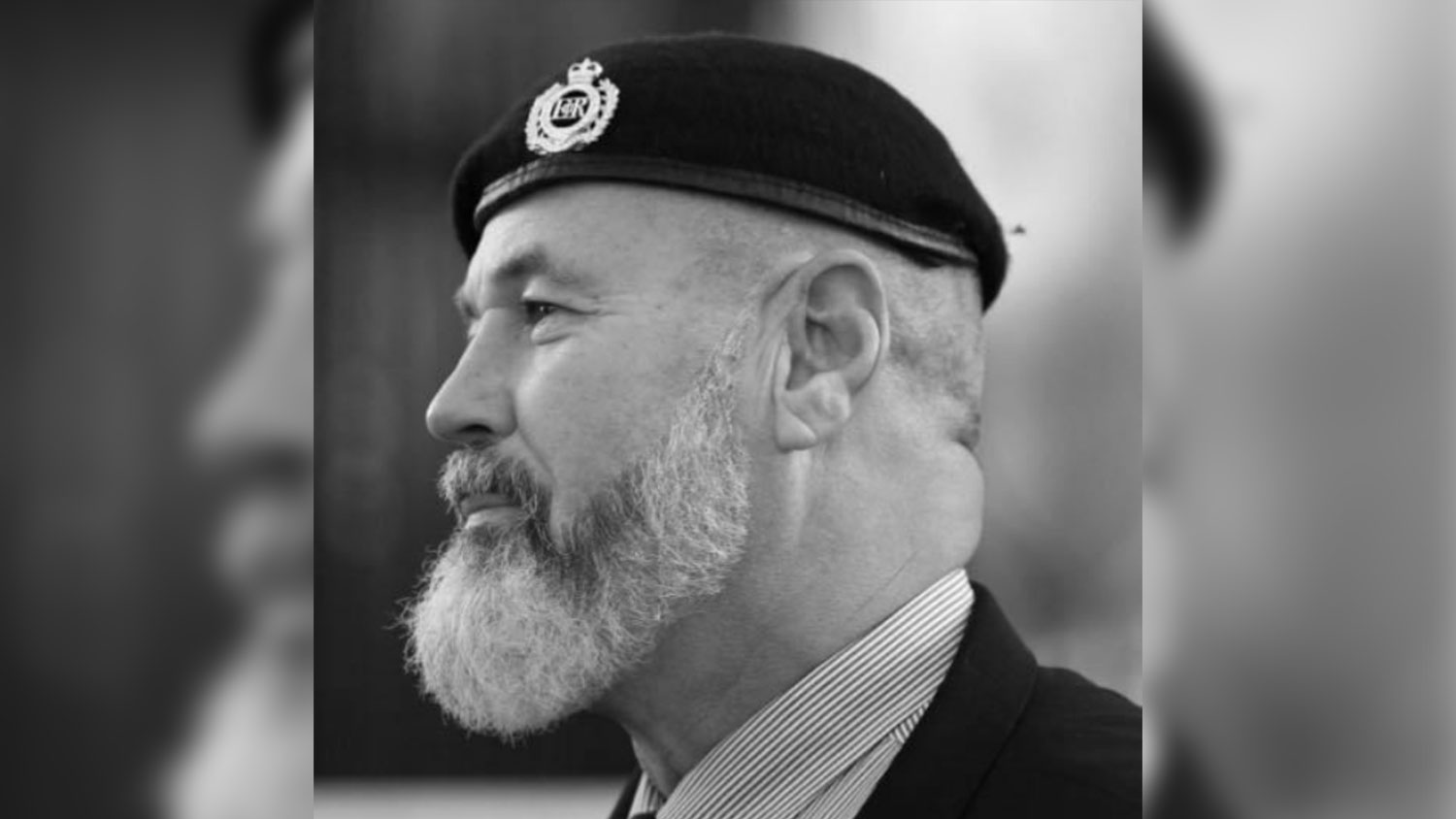
Thanks to help from the Art Fund, the V&A, the Richard III Society and a mammoth local fundraising effort organised by Buckingham Gaol Museum, and Mr Bethell's determination for it not to be bought at auction and go overseas, £40,000 was raised by the people of Buckingham to ensure it remained in the market town.
Of the fundraising effort, Mr Bethell said: "Old people from Buckingham, rich people from Buckingham, poor people from Buckingham, were giving money.
"Some people gave £1,000, other people were putting pounds in a pot outside [the gaol].
"It was beautiful."
The market town even went as far as selling a 'royal sausage' made of wild boar, pork and fresh apple to help raise money for the coin to remain local.
Dave's military career
Mr Bethell started his military career in 1972 as a Plant Operator Mechanic (POM) in the Royal Engineers, a corps he loves, saying: "The Royal Engineers, we're absolutely well known for wherever we go, we build bars predominantly.
"We'd swap a ton of aggregate for beer."
His first posting was to Iserlohn in Germany, where he met his former wife.
During the 1970s, the soldier completed two tours of Northern Ireland – the first in Ballykelly, just outside Londonderry, and in 1978 with 5 Squadron Royal Logisitic Corps and also in Lurgan at the 'Knicker Factory', so called because it was a textile factory before it was taken over by the Army.
In August 1982, the POM travelled to the Falkland Islands to repair the airfield bombed by the Avro Vulcan during the war.
In the years before he retired, Mr Bethell taught soldiers at the School of Military Engineering Chatham how to operate heavy equipment such as excavators and bulldozers.
He ended his career as a troop sergeant for 52 Field Squadron, an airfield damage repair squadron.
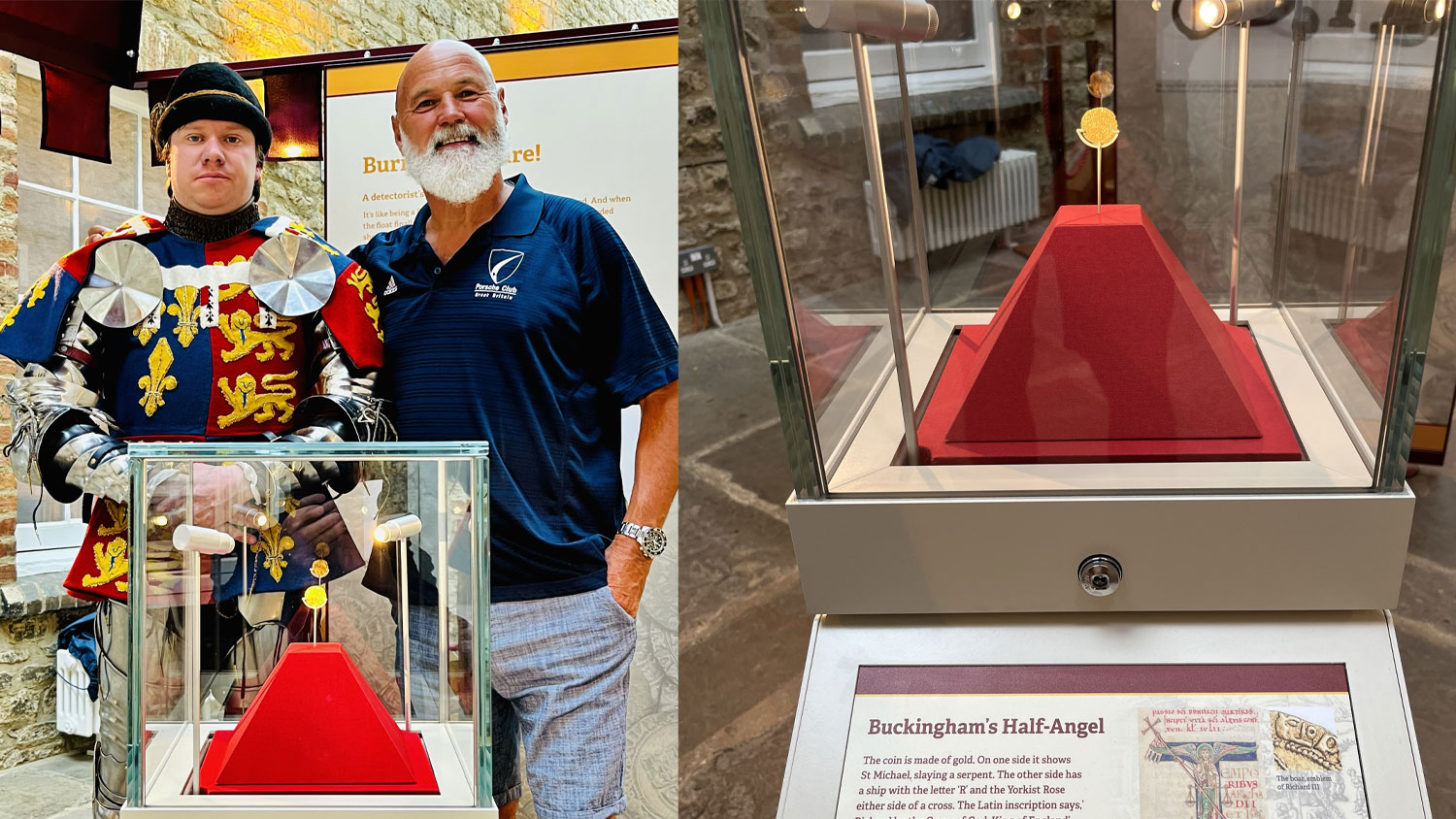
The veteran's transition to civvy street was an eye-opener, a story familiar to many ex-forces personnel.
He said: "Military veterans think they're going to get the same camaraderie and the same support, the same team spirit, they think they're gonna get it in civilian life and you don't."
The veteran discovered the once-in-a-lifetime find within 30 minutes of his first metal detecting session after retiring from HMP Woodhill in Milton Keynes, where he had worked with the "worst of the worst" for 27 years.
It's not about the money
When minted, the 540-year-old coin was worth three shillings and four pence, the equivalent of four days' wages for a skilled tradesman of the time, or £135 in today's money.
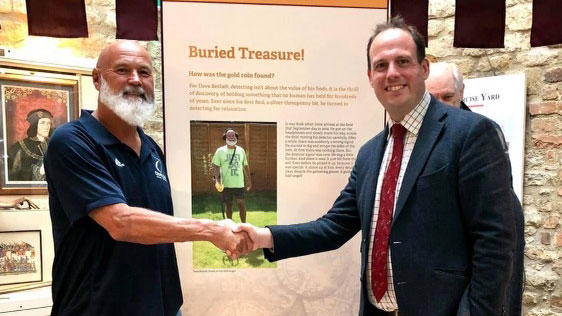
But for Mr Bethell, metal detecting isn't about the possible monetary gain.
In fact, he's only ever sold one item – the Half Angel – and thanks to a decade-long gentleman's agreement (confirmed by a simple handshake) with the farmer who owns the land in which the coin was discovered, he only received half of the £40,000.
For Mr Bethell, his passion for metal detecting, which he started doing 25 years ago, is "almost a military thing".
He said: "When you're in the military, you're exercising in the middle of Sennelager or one of the training areas, you're in the middle of nowhere and I absolutely love it.

"I always take a little flask with me.
"If I'm tired, I can just sit down, have a cup of coffee and just listen to the birds singing, it's just gorgeous."
The day Mr Bethell discovered the coin was his last day of work before retiring.
After 21 years and eight months of service in the Royal Engineers, 27 years as a prison guard and not one day of being unemployed, the veteran felt "a little bit down in the dumps" as it was the end of an era.
He said: "I felt a little bit lost, if I'm honest."
So on a hazy afternoon in September 2019, he turned to the one thing that helped chill him out – metal detection.
After searching for 20 minutes in the corner of a familiar field, Mr Bethell got a good signal while using his metal detector.
Despite expecting his good signal to turn out to be a horseshoe or a big piece of lead, the detectorist kept digging in the hope that he might find something unique.
He said: "I had [dug] quite a hole... and then it just fell out of the side of the hole.
"I just looked in and then this gold coin went plonk into the bottom and I picked it up, did the gold dance - which you have to do."
Mr Bethell was referring to the 'gold dance', an important ritual for the metal detectorist community who believe that if the finder fails to do the dance, they will never detect any more gold.
And what will happen if Mr Bethell finds another coin?
Buckingham can rest easy knowing any future gold found by the local detectorist will remain safely in the market town made famous by the discovery of one of the rarest coins in the world.


